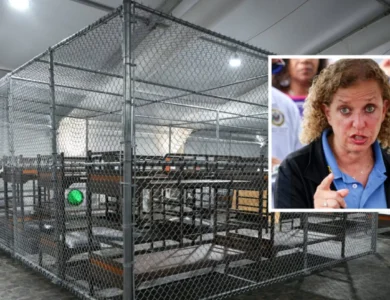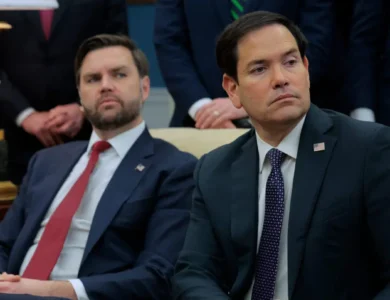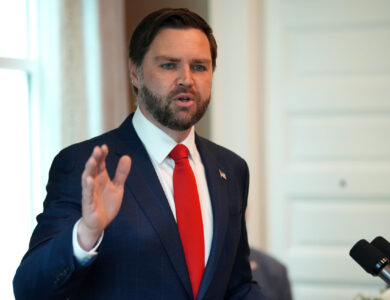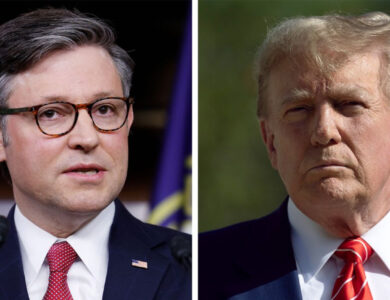CHINA BLINKS: Trump Officials Will Meet Chinese Counterparts On Trade, Economic Issues
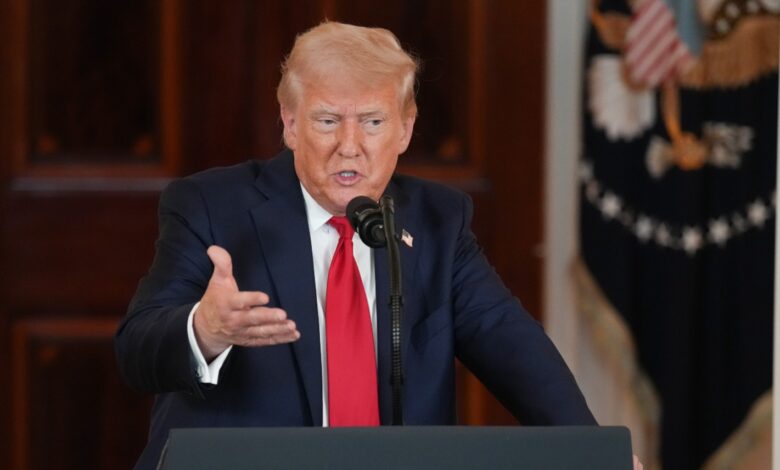
United States Treasury Secretary Scott Bessent and U.S. Trade Representative Jamieson Greer will meet with their Chinese colleagues in Switzerland this weekend to discuss economic and trade issues.
The massive move comes just days after China vowed not to back down in the trade war against the United States, which many can see as China already making concessions.
Read more: Donald Trump Jr. Makes Earth-Shaking 2028 Announcement
“We have shared interests,” Bessent said, adding that the current tariff war “isn’t sustainable, especially on the Chinese side. And, you know, 145 percent [tariffs], 125 percent, is the equivalent of an embargo. We don’t want to decouple, what we want is fair trade.”
The Treasury secretary said that he and Greer will meet with their Chinese colleagues on Saturday and Sunday.
The discussions look to be a significant step toward Washington and Beijing starting conversations to perhaps end the continuing trade war sparked by President Donald Trump.
Read more: Judge Orders Redaction Of Epstein Island Images After Court Accidentally Releases Them
“My sense is that this will be about de-escalation, not about the big trade deal,” Bessent told host Laura Ingraham. “But we’ve got to de-escalate, before we can move forward.”
Trump raised tariffs on Chinese imports to 145% last month, even as he reduced so-called reciprocal levies on practically all other US trade partners. China, one of America’s main trading partners, countered with high taxes on US imports.
Both Bessent and Greer want to meet with Swiss President Karin Keller-Sutter during their visit, according to their respective offices.
The Chinese Foreign Ministry said that Vice Premier He Lifeng, Beijing’s top official for China-US economic and commercial relations, will meet with Bessent in Switzerland.
Read more: Karoline Leavitt Hands Over Briefing Room for Incredible Reason
“Economic security is national security, and President Donald J. Trump is leading the way both at home and abroad for a stronger, more prosperous America. I look forward to productive talks as we work towards rebalancing the international economic system towards better serving the interests of the United States,” Bessent said in a statement announcing the meetings.
Greer’s office said he “will also meet with his counterpart from the People’s Republic of China to discuss trade matters” while in Geneva, his office said.
“At President Trump’s direction, I am negotiating with countries to rebalance our trade relations to achieve reciprocity, open new markets, and protect America’s economic and national security,” Greer said.
“I look forward to having productive meetings with some of my counterparts as well as visiting with my team in Geneva, who all work diligently to advance U.S. interests on a range of multilateral issues,” Greer said.
Read more: Hunter Biden Cites Financial Woes In Desperate Plea To Federal Judge
The US and Chinese officials are currently continuing their tariff discussions, but China has already made concessions, either as a sign of good faith or as a tacit admission that the Trump administration has the communist nation in its sights.
According to the most recent sources, around one-quarter of all US imports to China have been surreptitiously spared from 125% tariffs, amounting to $40 billion in American-made items that will now reach Chinese customers without the exorbitant surtax.
The decision comes as Beijing seeks to cushion the damage to its economy from President Trump’s across-the-board 145% tariff on Chinese goods.
Pharmaceuticals and industrial chemicals are among the exempted products.
Read more: Do You Think Democrats Believe They Are Above The Law?
Trade specialists told Bloomberg that the policy shift by Chinese President Xi Jinping to match Washington’s moves was strategic rather than conciliatory; however, it is unclear if disarmament was initiated by the White House.
On Friday, Xi’s spokesperson said Chinese officials are “evaluating” the Trump administration’s latest offer, a key change in tone that might pave the way for protracted negotiations on a historic revision of the US-China trade gap.
Last Thursday, Secretary Bessent told Fox News’ Maria Bartiromo that he believes Beijing officials are ready to make a deal after weeks of punishing tariffs that may soon cost China’s economy between five and 10 million jobs.
Read more: Ilhan Omar Does The Unthinkable After Israeli Embassy Staffers Killed in DC
“I am confident that the Chinese will want to reach a deal. And as I said, this is going to be a multi-step process. First, we need to de-escalate. And then over time, we will start focusing on a larger trade deal,” Bessent said.
